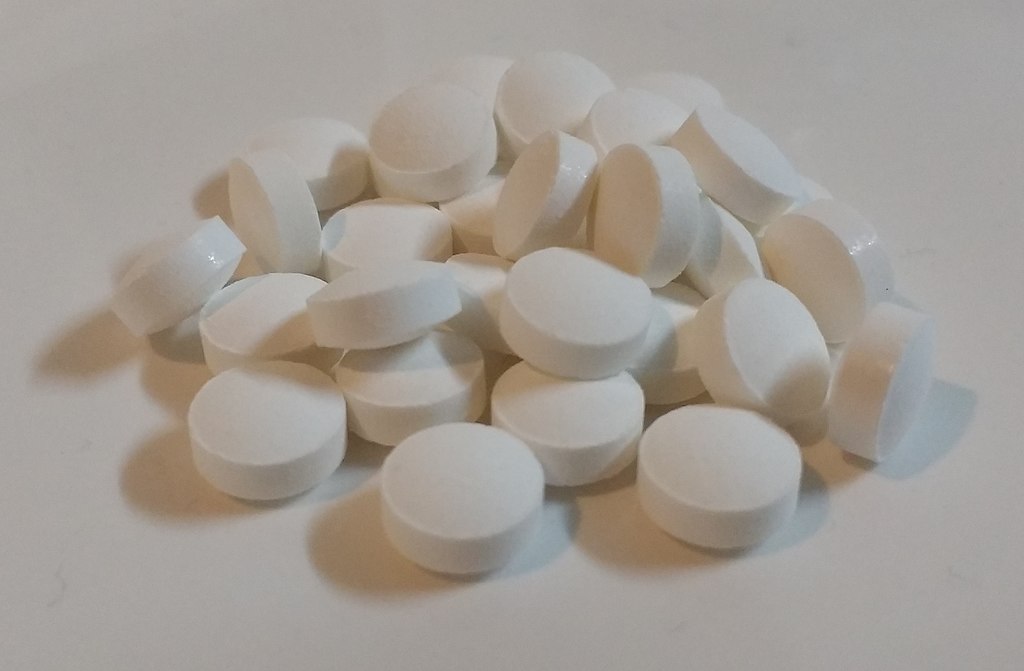The key difference between zinc gluconate and zinc glycinate is that zinc gluconate performs better in strengthening the immune system than zinc glycinate.
Zinc gluconate is a type of organic zinc supplement that has a zinc salt of gluconic acid, while zinc glycinate is a compound of zinc and glycine. These are important medications in use and are supplements of zinc, an essential component of the body. These supplements are used to strengthen the immune system of the body.
CONTENT
1. Overview and Key Difference
2. What is Zinc Gluconate
3. What is Zinc Glycinate
4. Zinc Gluconate vs Zinc Glycinate in Tabular Form
5. Summary – Zinc Gluconate vs Zinc Glycinate
What is Zinc Gluconate?
Zinc gluconate is a type of organic zinc supplement that has a zinc salt of gluconic acid. It is an ionic compound that has a zinc cation and gluconate anion. Moreover, it is a dietary supplement, and we can produce it industrially via the fermentation of glucose. Therefore, this product has a long shelf life.
Generally, some zinc supplements contain cadmium as an ingredient, but cadmium can lead to kidney failure; thus, zinc gluconate is a better choice because it contains the lowest amount of cadmium among other zinc supplements.

Furthermore, the chemical formula of this compound is C12H22O14Zn, and the molar mass is 455.68 g/mol. Furthermore, its melting point can range from 172 to 175 °C.
Zinc gluconate should be taken as prescribed by the doctor. Usually, it comes in the form of tablets, and it is normally taken along with food. This is because it can upset the stomach if we do not take it with food. However, the daily dose that is recommended by the manufacturer can change with age. Another important fact to remember is allowing the tablet to completely dissolve in our mouth before swallowing it. Moreover, it is not appropriate to take more than 6 lozenges of zinc gluconate per day.
What is Zinc Glycinate?
Zinc glycinate is a medication that can help strengthen the immune system and reduce inflammation in the body. There are several types of chelated zinc supplements on the market. But zinc glycinate is one of the best options along with zinc gluconate. Typically, each zinc glycinate tablet contains about 30 mg of zinc which is better absorbed compared to other types of zinc supplements.
Benefits of Zinc Glycinate
There are different benefits of using zinc glycinate. Some benefits are listed below:
The chemical formula of zinc glycinate is C4H8N2O4Zn. The molar mass of this compound is 213.5 g/mol. It is a nitrogen-containing zinc complex.
What is the Difference Between Zinc Gluconate and Zinc Glycinate?
Zinc gluconate is a type of organic zinc supplement that has a zinc salt of gluconic acid. Zinc glycinate is a medication that can help strengthen the immune system and reduce inflammation in the body. The key difference between zinc gluconate and zinc glycinate is that zinc gluconate performs better in strengthening the immune system than zinc glycinate.
The below infographic presents the differences between zinc gluconate and zinc glycinate in tabular form for side-by-side comparison.
Summary – Zinc Gluconate vs Zinc Glycinate
Zinc gluconate and zinc glycinate are important medications. Both are helpful in strengthening the immune system. The key difference between zinc gluconate and zinc glycinate is that zinc gluconate performs better in strengthening the immune system than zinc glycinate.
Reference:
1. Todtenbier, Jay. “What is Zinc Glycinate Used For?” 8 Reasons to Take Zinc.
2. “Zinc Glycinate.” National Center for Biotechnology Information. PubChem Compound Database, U.S. National Library of Medicine.
3. “Zinc Gluconate Uses, Side Effects & Warnings.” Drugs.com.
Image Courtesy:
1. “Zinc pills” By Mx. Granger – Own work (CC0) via Commons Wikimedia
ncG1vNJzZmivp6x7pbXFn5yrnZ6YsqOx07CcnqZemLyue9ahmK1lmah6tbTEZpuinpaav6a6wp5km52krLKmuoyzoKebXZy5tq%2FOp5itnV2Wu6V52aKlnGWXocaktc2aq55n